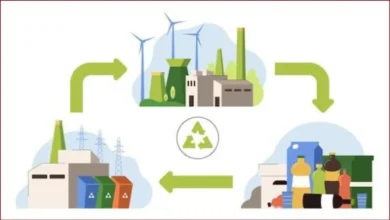The Future of Property Investment: Real Estate Tokenization Platforms

Introduction to Real Estate Tokenization
Real estate tokenization is revolutionizing the property investment landscape by leveraging blockchain technology to create digital representations of physical assets. This innovative approach allows properties to be divided into smaller, tradable units, known as tokens. Each token represents a fraction of ownership in the underlying real estate asset. The process of tokenization enhances liquidity, accessibility, and transparency in the real estate market, making it possible for a broader range of investors to participate. As the adoption of blockchain technology continues to grow, real estate tokenization platforms are emerging as a pivotal development in the industry, promising to democratize access to property investment.
The Mechanics of Real Estate Tokenization Platforms
Real estate tokenization platform operate by utilizing blockchain technology to create, manage, and trade property-backed tokens. The process begins with the identification and valuation of a real estate asset, followed by the creation of digital tokens that represent fractional ownership of the property. These tokens are then listed on a blockchain-based platform, where investors can purchase, sell, or trade them. The blockchain ensures that each transaction is secure, transparent, and immutable, providing a high level of trust and efficiency. Furthermore, smart contracts are often employed to automate processes such as dividend distributions, property management, and compliance with regulatory requirements. This automation reduces administrative overhead and ensures that transactions are executed seamlessly.
Benefits of Real Estate Tokenization Platforms
Real estate tokenization platforms offer numerous advantages for both investors and property owners. One of the most significant benefits is increased liquidity. Traditional real estate investments are often illiquid, requiring significant time and effort to buy or sell properties. Tokenization, however, allows for fractional ownership, enabling investors to easily buy or sell tokens on a secondary market. This increased liquidity makes real estate investments more attractive to a wider audience. Additionally, tokenization lowers the barrier to entry, allowing smaller investors to participate in high-value real estate projects that were previously inaccessible. The transparency provided by blockchain technology also enhances trust, as all transactions and ownership records are securely stored and easily verifiable. For property owners, tokenization can unlock additional value by providing a new way to raise capital without the need for traditional financing methods.
Challenges and Considerations in Real Estate Tokenization
Despite its numerous benefits, real estate tokenization is not without challenges. One of the primary concerns is regulatory compliance. The legal framework for blockchain and digital assets is still evolving, and navigating this landscape can be complex. Different jurisdictions have varying regulations regarding securities, property ownership, and digital assets, making it crucial for tokenization platforms to ensure compliance with local laws. Additionally, the integration of traditional real estate practices with blockchain technology requires a thorough understanding of both sectors. There are also technical challenges related to the security and scalability of blockchain platforms. Ensuring the protection of investor funds and personal data is paramount, and any vulnerabilities in the system can undermine trust in the platform. Finally, market adoption is still in its early stages, and educating potential investors and property owners about the benefits and mechanics of tokenization is essential for widespread acceptance.
The Future of Real Estate Tokenization Platforms
The future of real estate tokenization platforms looks promising, with the potential to transform the property investment landscape significantly. As blockchain technology continues to mature, we can expect to see more robust and user-friendly platforms emerging. Advances in technology will likely address many of the current challenges, such as improving security and scalability. Additionally, as regulatory frameworks become more defined, navigating compliance will become more straightforward. The growth of decentralized finance (DeFi) and the integration of tokenized real estate with other financial services will further enhance the appeal of these platforms. Ultimately, real estate tokenization has the potential to create a more inclusive and efficient market, democratizing access to property investment and unlocking new opportunities for wealth creation. As the industry evolves, staying informed and adaptable will be key to leveraging the benefits of this groundbreaking technology.
Conclusion
Real estate tokenization platforms represent a significant advancement in the property investment sector. By leveraging blockchain technology, these platforms offer increased liquidity, accessibility, and transparency, making real estate investment more attractive and attainable for a broader range of investors. While challenges exist, the continued development of technology and regulatory frameworks will likely overcome these hurdles, paving the way for a future where real estate tokenization becomes a mainstream method of property investment.



